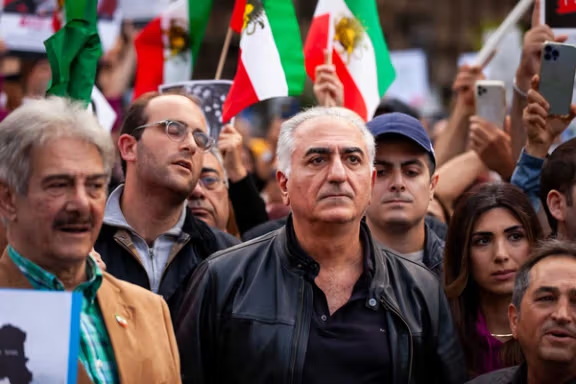Iran is ripe for a revolution, exiled prince says

The Islamic regime in Iran is weaker than ever before and the country is ripe for a revolution, Iranian exiled Prince Reza Pahlavi told CBN News on Monday.

The Islamic regime in Iran is weaker than ever before and the country is ripe for a revolution, Iranian exiled Prince Reza Pahlavi told CBN News on Monday.
The 63-year-old prince, in his capacity as a top opposition leader, has long been campaigning for the establishment of "a secular democracy" in Iran and the end of the Islamic Republic's 46-year rule, which started with the 1979 Islamic Revolution that overthrew the Pahlavi monarchy.
In his latest interview with the US-based Christian Broadcasting Network (CBN), Pahlavi said, "When you have a regime that is completely delegitimized when you have people who no longer believe in the system, even if they did at some point and they want out, that makes this system vulnerable."
He further cautioned the United States and Western powers not to be deceived by the election of Iran's new president, Masoud Pezeshkian, referring to him as a “lackey.”
Criticizing the legitimacy of the widely boycotted Iranian presidential elections, Pahlavi remarked, "We call this the circus of elections in Iran." He added, "In all these years, it really didn't matter who was presented because all the shots are ultimately called by Khamenei, the supreme leader."
Official figures released by Iran's Interior Ministry put the turnout in the first round of the elections held on July 28 at 39.92 percent, the lowest recorded since the establishment of the Islamic Republic in 1979.
In February this year, a study by Iran's Ministry of Culture and Islamic Guidance revealed that approximately 73 percent of Iranians advocate for the separation of religion from state, indicating an unprecedented demand for a secular government.
Referring to this figure, Pahlavi said: "The regime's own figures demonstrate that at least 73% of the population want another form of government."
The confidential study, leaked to foreign-based Persian media outlets, highlights a sharp increase in secularism, with demands for secular governance rising from less than 31 percent in 2015.
The significant change seems to have taken place since large anti-government protests in 2022 and 2023 when the "Woman, Life, Freedom" movement began, representing the most serious challenge to the Islamic Republic in 45 years.
In one of the most important findings of the study, 85 percent said Iranians have become less religious compared to 5 years ago. Only 7 percent said they have become more religious and around 8 percent said they can see no difference in this regard between now and 5 years ago.